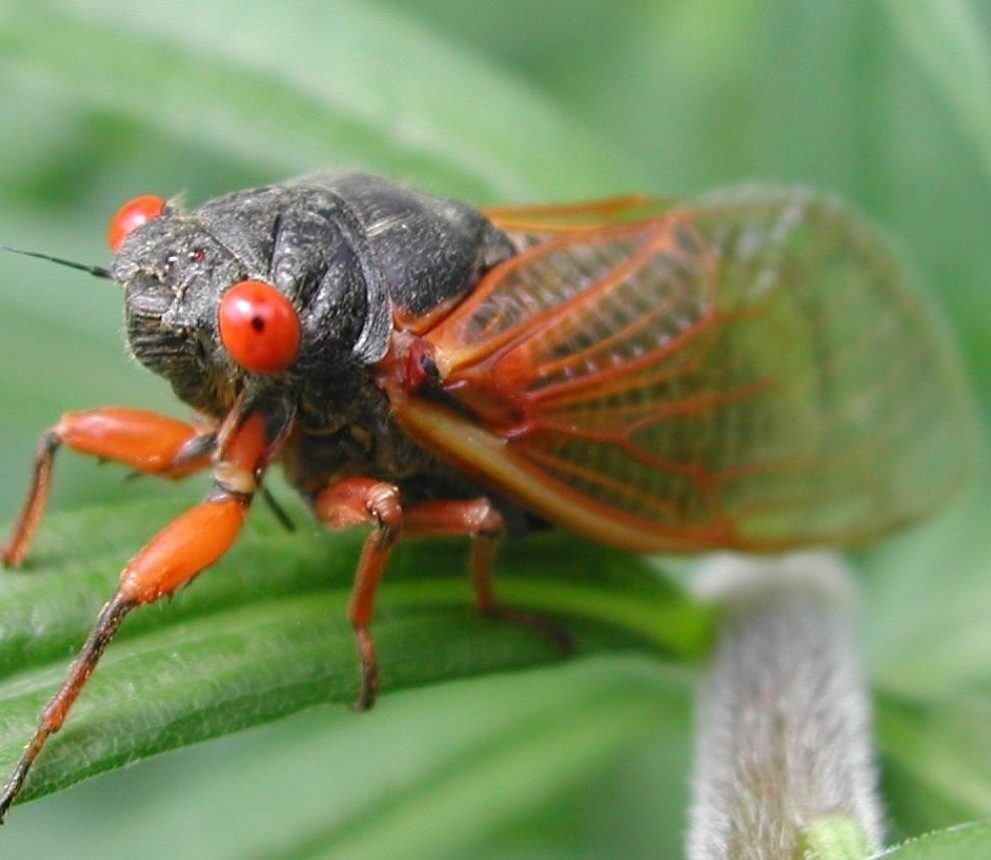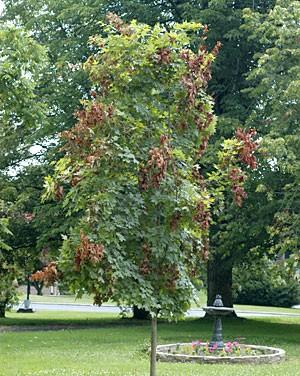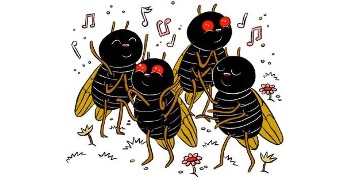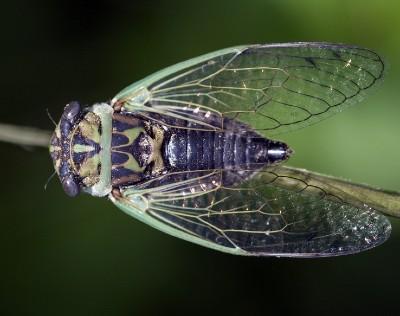Cicadas – did you know?

The cicadas are some of the loudest creatures on earth, the hum is made by the males and will reach about 100 decibels. (motorcycle is about 95 decibels) The hum is the “love song” to attract the females .
Cicadas are large charismatic insects in the order Hemiptera. They have sucking mouthparts which they use to feed on the xylem (water transporting tissue) of trees.
There are two types of cicadas commonly found in the eastern United States:
- The dog-day or annual cicada, Neotibicen canicularis, occurs every summer.
- Periodical cicadas (also known as “17-year locusts,” even though they are not locusts) emerge every 17 years based on the timing of different broods. Brood X will emerge in spring 2021 and is comprised of three species- Magicicada septendecim, Magicicada cassini, and Magicicada septendecula..
Cicada nymphs (immatures) live underground and emerge from the soil at the end of April to the beginning of May. After molting into adults, individuals move or fly to nearby vertical structures, especially shrubs and trees. Males will start their droning mating song to attract females. This is accomplished by vibrating membranes located on the sides of the insect beneath the wings.

Tree Damage
Males may munch on trees leaves but this doesn’t typically lead to permanent damage.
The tree damage occurs when the females make a small cut in the thin, tender ends of young tree branches and lay their eggs. The tip of the tree branch will turn brown, die and fall to the ground allowing the young larvae to burrow into the ground as the next generation.
If you notice tree branch tips turning brown, prune off the ends into a trash bag and dispose. Don’t add to your green debris or organic pile. Disposal in the trash will help reduce the size of the next generation in your immediate area.

Pets
Cicadas are not toxic, they are actually high in protein.
Dogs and cats generally aren’t harmed if they eat a couple cicadas. Like any treat, the problem is in the over-eating. Dogs in particular may not know when to stop eating them, they will be so abundant. The crunchy outer shells can cause discomfort and if they eat too many could cause digestive issues.
During this period, don’t leave pets outside unattended. It is best to walk them on a leash or supervise outside play to ensure they aren’t eating too many.

Kids
Although the cicadas are loud and certainly a nuisance, it is an exciting time for Mother Nature.
If your children are small, it’s best educate them before the cicadas emerge. Emphasize the fact that cicadas do not bit or sting, they are loud but not harmful. Debunk the myths that a cicada can sting and lead to certain death or that they aim to sting between the eyes or make a nest in your hair and other popular playground stories. Show them pictures of the cicadas so they are informed and prepared.
If possible, plan indoor activities for this period to alleviate their stress about being outdoors. If they are attending summer camp, reach out to the camp and ask about their plans for activities during this period.
If adults approach this period like it’s an exciting and exploratory time to enjoy Mother Nature, your children will take their cues from you and feel less stress and anxiety.
Article adapted from Kate Culotta, Roland Park Community Foundation
